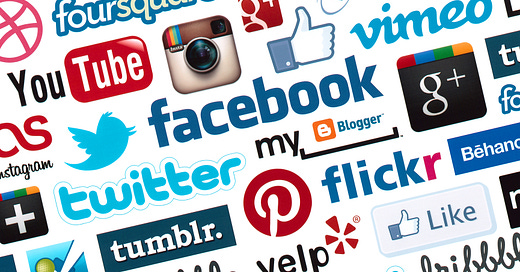The annual arrival of September 11th always offers a moment to pause, remember, and reflect. The surreality of the tragedy and loss of innocent lives, and the subsequent scale of death and destruction wrought in Iraq and Afghanistan compounded the magnitude of the disaster. For some reason, this year an essay from Slavoj Žižek’s Welcome to the Desert of the Real popped into my mind, in which he discussed how we experienced the events of September 11th as a virtual reality happening on our screens.
Even with the towers falling, we were shielded from the reality of the carnage; we saw no severed limbs, we saw no pools of blood or crushed bodies. Even the horrifying spectacle of people jumping from the World Trade Centre towers was seen as mere specks, as if like bits of falling debris rather than human beings hurtling towards an appalling death. We witnessed the event as if we were watching a Hollywood disaster movie.
Žižek wrote:
“Virtual Reality is experienced as reality without being so. What happens at the end of this process of virtualisation, however, is that we begin to experience ‘real reality’ itself as a virtual entity.”
Žižek situated this “reality as a virtual entity” within the context of a market of “products deprived of their malignant properties”, whether coffee without caffeine or beer without alcohol. In this regard:
“Virtual Reality simply generalises this procedure of offering a product deprived of its substance: it provides reality itself deprived of its substance, of the hard resistant kernel of the Real...”
He may have been limited by the frame of references available at the time, which was before the advent of Facebook, the exponential growth of other social media platforms, and our increasing retrenchment from reality itself. The marketplace of ideas has brought us the marketplace of realities. For Žižek, 9/11 was experienced as an aesthetic display that, due to Hollywood, we had seen some iteration of, over and over.
But social media has shifted the balance of power away from Hollywood; each individual now has the means to be their own aesthetic, and for others to experience that aesthetic display. Whether the display is authentic or contrived is difficult, often impossible, to verify; the authentic and contrived meld together into an indistinguishable simulation.
This extends to tragic events occurring today, whether smartphone recordings of women bungled into vans in Iran, the latest ecological tragedy of flood, fire, or quake, or Russian missiles hitting Ukrainian hospitals. They appear on our screens, and without a moment to truly engage with the images before us, we’re sharing and forwarding, each step of virality stripping the images of their power until all that is left is something indiscernible from anything we’ve seen before.
We strip these events of their malignancy to consume them. We do not “bear witness” to these terrible events, because what we truly experience is reality deprived of the hard kernel of the Real. Yet Real they are, experienced by real people, suffering of real pain, tragedies of enormous scale. This reinforces the distance between us, those viewing these events as an abstraction mixed into their scrolling feed of memes and smoothies and downward dog, and those experiencing these tragic events in the Real, in the material world.
Žižek’s concept of Virtual Reality entailed that we have a reference point for the Real, an anchor of reality against which Virtual Reality may be juxtaposed. What happens when the need for a substance, a hard resistant kernel of the Real, is removed entirely? This appears to be where our “advancements” at the altar of the technology gods are leading us; online lives in an online world, which promises us that soon Virtual Reality will be immersive, a place to persist, rather than exist, in a virtual world we could never find in the material world. Society appears to be clamouring for their new gods to remove the kernel of the Real. Yet the Real will sustain, of this we can be certain; all Virtual Reality will ever be able to provide is a blindfold, as if like children who cover their eyes to play hide and seek.
This is the central problem: our frame of reference for the Real has been altered immeasurably. The more we chip away at the kernel of the Real, the more we position a simulation of our imaginary or desired Virtual Realities as reality itself. No longer juxtaposed against a known Real that we are in touch with, and therefore no longer juxtaposed as reality deprived of its substance, because reality has been subsumed by the simulation of reality. It cannot be juxtaposed, because it is no longer distinguishable.





The vr/ar/metaverse immersed human, whose gear for ~metaverse is super gucci, living in a ~shack is the meme i’m seeing. Similar (but different!) in some ways to the enlightened buddha living in an alley.
A provocative approach, to be embraced in a prison cell but treated as a threat when outside.